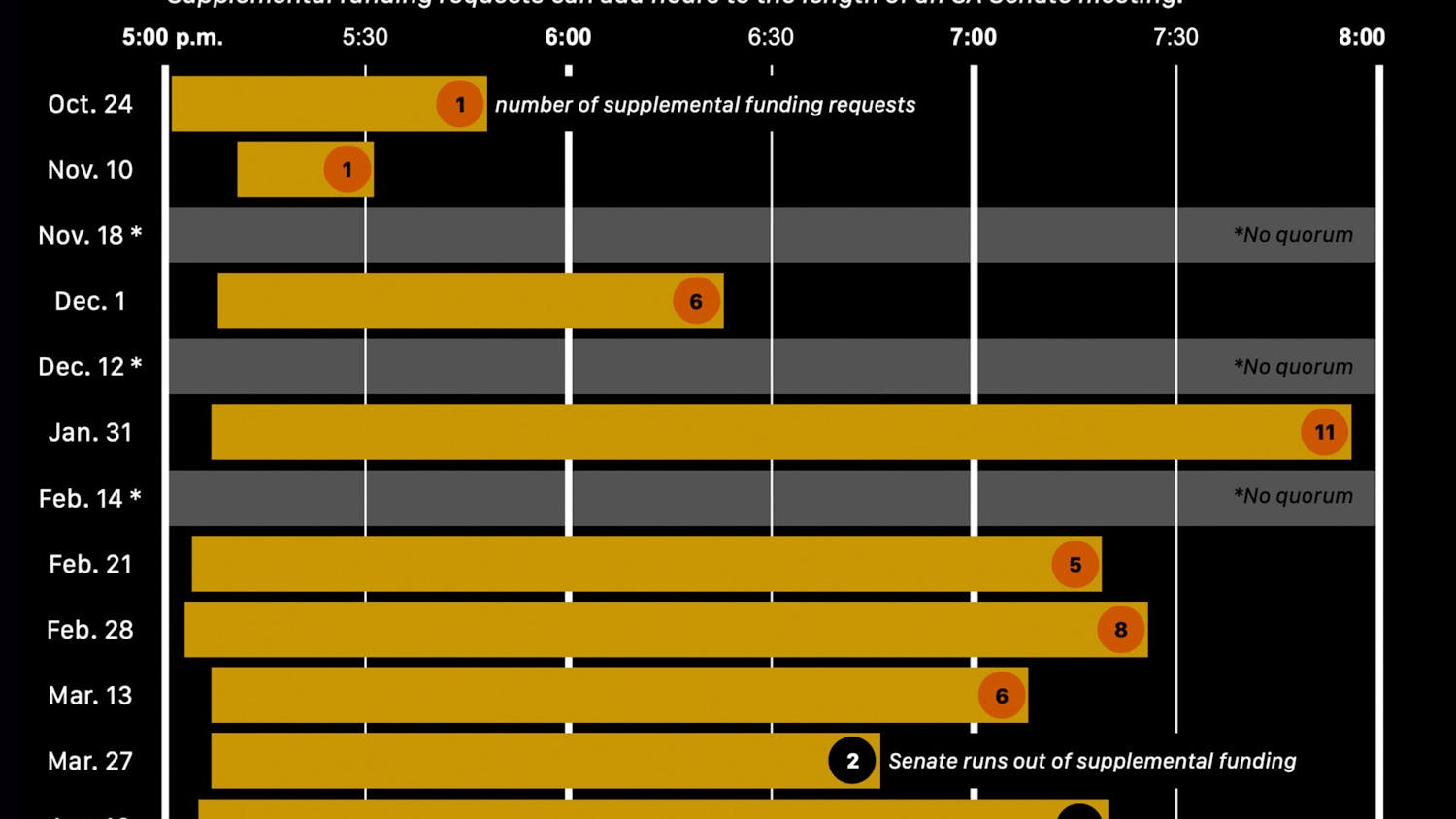UB is earning the gold star in the field of sustainability.
The Sustainability Tracking, Assessment and Rating system (STARS) report, which examines over 80 different fields of sustainability on campus, listed UB as among the top 1.6 percent of universities in the United States in sustainability practices, with gold certification.
The STARS report was developed by the Association for the Advancement of Sustainability in Higher Education (AASHE) to allow campuses to keep track of their sustainability efforts. The rating system, which goes from reporter to bronze, silver, gold and platinum, analyzes campus-wide sustainability efforts in over 80 different fields with 15 questions.
The comprehensive report allows universities to look into their practices and search for more productive and efficient campus activities. UB’s last report, which received a silver rating, allowed the campus to look into its practices and find more sustainable ways to operate.
“Sustainability isn’t necessarily a goal – it’s a strategy,” said Ryan McPherson, UB’s chief sustainability officer. “When I ask students for a word that comes to mind when they hear sustainability, I get answers like ‘recycling,’ – things to do with the environment. But then sometimes I get answers like ‘thinking’ and ‘responsibility,’ which is what sustainability entails.”
UB Sustainability has a record of resources that are used by people and the economy and the waste that remains. UB Sustainability works to have less waste and return resources back into the environment.
One step UB takes to reduce waste is the composting projects of the Campus Dining Shops (CDS), which takes waste from the Crossroads Culinary Center in the Ellicott Complex and decomposes it to return the nutrients to the soil.
While the sight may not be so delightful to some, the greater purpose is seen.
“It doesn’t smell great, but I know that it’s going to be recycled and serve a greater purpose,” said Alle Sinclair, a freshman biological sciences major. “I’m glad to be a part of a campus that really places importance on our future.”
From CDS to the students themselves, sustainability efforts all around campus have contributed to UB rising from silver last year to gold in this current year.
“When implementing projects for sustainability, we have to know where we are and where were going,” McPherson said. “Using the report, we can see where improvement is needed, and how to proceed from there. The plans are strategically driven.”
Other projects include reducing waste at UB Athletics games by using only recyclable and compostable materials at concession stands and placing recycling bins in and around the arena. The concession stands will also move away from using items that produce trash and leave waste.
Students are also involved in sustainability projects of their own.
The paper towel study, which was started by engineering students on campus, was used to determine that hand dryers in bathrooms were more effective, efficient and cost-friendly than paper towels. It gave an incentive to place hand dryers in bathrooms.
McPherson said he remains positive in the efforts for a sustainable campus.
“I like to think positively. Since sustainability is a strategy the idea is to find a home for everyone,” McPherson said. “You’re going to have a few people who will go out and do their best, and usually people will start to join in.”
Progress is the goal, according to McPherson, and UB has made progress by receiving a gold rating. McPherson compared sustainability progress to anti-smoking campaigns, stating that people were once skeptical about them but “looking at smoking today, it’s nothing like it was then.”
Campus organizations such as Alpha Kappa Kai, an environmental fraternity, along with work being done in almost all departments, contribute to UB’s sustainability. Community service projects along with problem solving in engineering have found ways to use energy more efficiently.
Saniya Attar, a senior biological sciences major, takes pride in UB’s efforts toward a greener campus.
“I think it’s great that UB is focusing on being green,” Attar said. “I have a lot of respect for nature and I really think that the environment is important, and people should treat it with more respect.”
While the environment and its protection is a huge factor in sustainability, it isn’t the only factor.
“Sustainability saves money, resources and contributes to the research on this campus,” McPherson said. “Finding ways to use energy efficiently and finding efficient energy sources are in many areas of research on campus,”
Moving toward a green campus is a goal for the campus, and getting students involved is an important part of the strategy. McPherson said he feels that sustainability is a very important lesson for students to take with them.
McPherson said he feels that students should go and get educated and always have the idea of bettering the environment on their minds.
“When they graduate, they take it with them out into the world, which leads to greener living and consideration of responsibility for generations,” McPherson said.
Thanya Theogene is a news staff writer. The news desk can be reached at news@ubspectrum.com.





